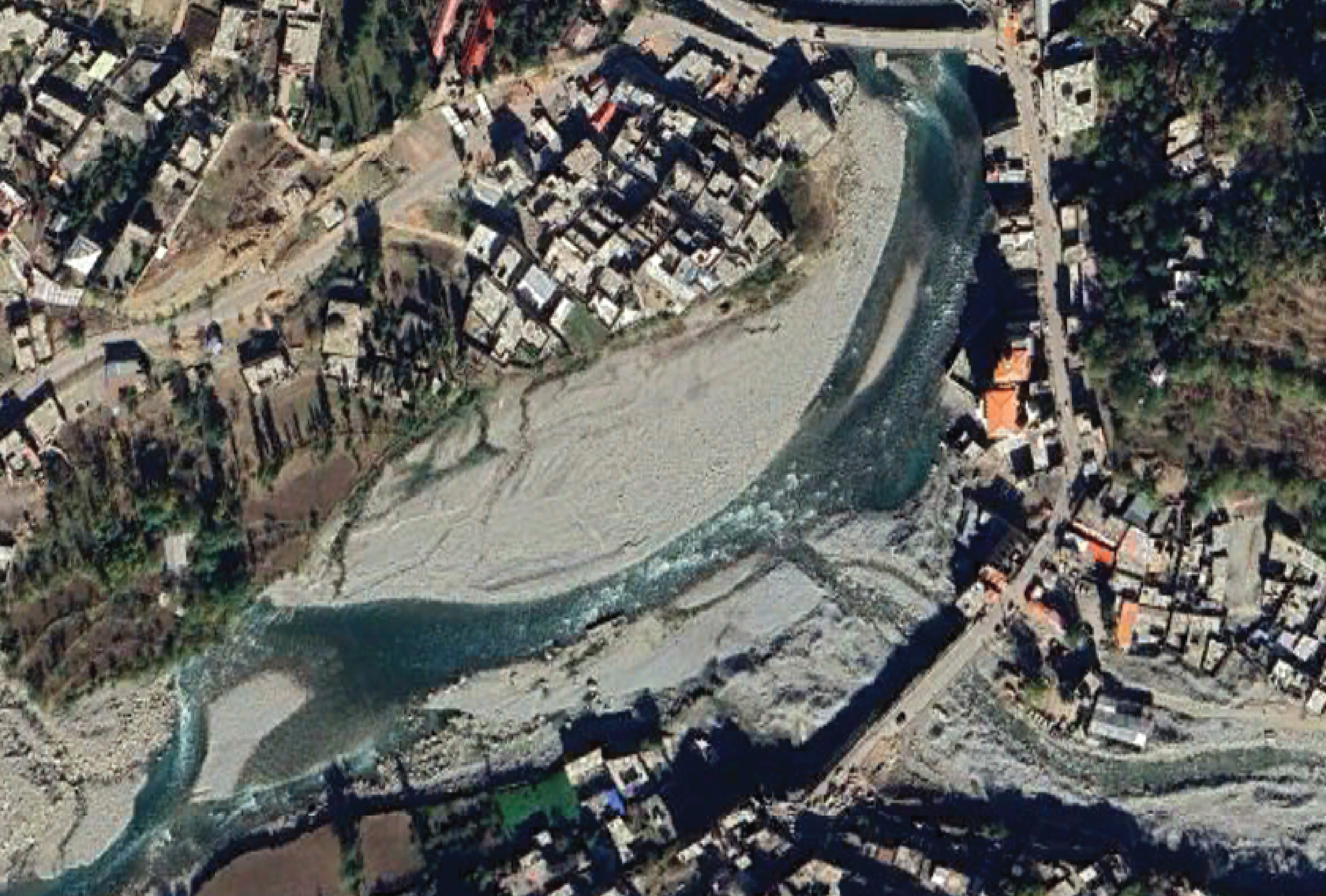Nisar Ahmed Torwali is doing a Master’s degree in Political Science at the University of Swat. Since hearing about the Madyan Hydropower Project, he has been concerned about his beautiful village, Darolai, as he fears that the construction of an energy plant similar to the Daral Khwar Hydropower Project will dry up the village’s wells, destroy vanish the agriculture and damage its natural beauty.
The Khyber Pakhtunkhwa government has decided to set up a 207MW hydro powerhouse in Madyan, the tourist hub of Swat. This project managed by the Pakhtunkhwa Energy Development Organization (PEDO) is being funded by the World Bank.
The district administration has implemented Section 4 of the Land Acquisition Act on the Madyan land and nearby areas for the mandatory land acquisition for the project. However, most locals are unwilling to give up their agricultural land.
The Section 4 of the Land Acquisition Act states that if the government or any company requires land for public use, it must make the announcement in the official gazette. The land collector will also post notices at various public places to inform the people about the acquisition of the required land/property.
Hazrat Gul lives in Manakai, a village in Bahrain. He retired from the army in 2017 after a 30-year-service. According to him, he and his brothers own 14.9 Kanals in the village where Section 4 has been imposed to build a powerhouse colony. He says that during the initial survey, the developer intended to purchase land from a local influential figure for the colony; however, later the plan changed and the owners vacated their land due to pressure and influence.
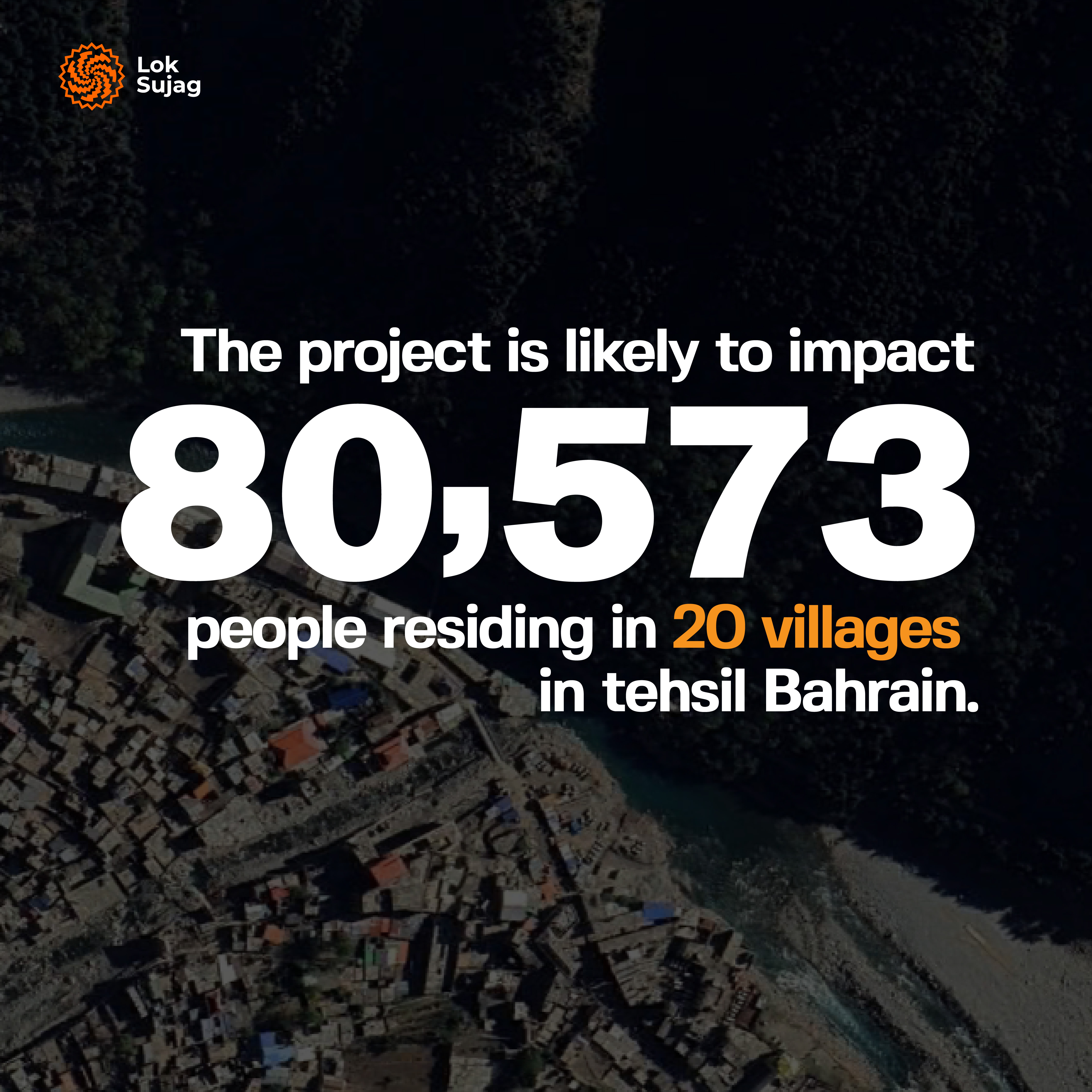
“After that, the government inequitably imposed Section 4 on our and our neighbors’ land, which is unjust. We only have this agricultural land through which we eke out living by cultivating maize and wheat.”
Gul says that he discovered the implementation of Section 4 on his land in 2023, after which he applied to the deputy commissioner’s office but he did not get a satisfactory response despite several attempts.
Bahrain is the largest tehsil of district Swat and is rich in natural resources, including alpine forests, roaring rivers, mountain streams, waterfalls, lakes, glaciers and diverse wildlife.
Location of the project
An assessment report, ‘Environmental and Social Impacts of Madyan Hydropower,’ present on the World Bank website states that the project area lies at the confluence of three major mountain ranges, the Himalayas, Hindu Kush and Karakoram where the Swat river and its tributaries flow through deep and narrow gorges. The report has declared the 16km long area along the Swat river as the impact zone of the project.
Most of the work will be conducted within 200 meters on the left bank of the river. It implies that the actual area will be 2km wide (0.5km on the right side of the river and 1.5km on the left side).
Flora and fauna
The assessment report identifies 196 species of plants belonging to 60 families in the biological resources of the project area, including 35 species of flowers, 18 species of trees, 116 species of shrubs and 27 species of grasses. Various species of fruit trees (persimum) are common here, which provide food for birds and two big mammals, the rhesus monkey and the Asiatic black bear.
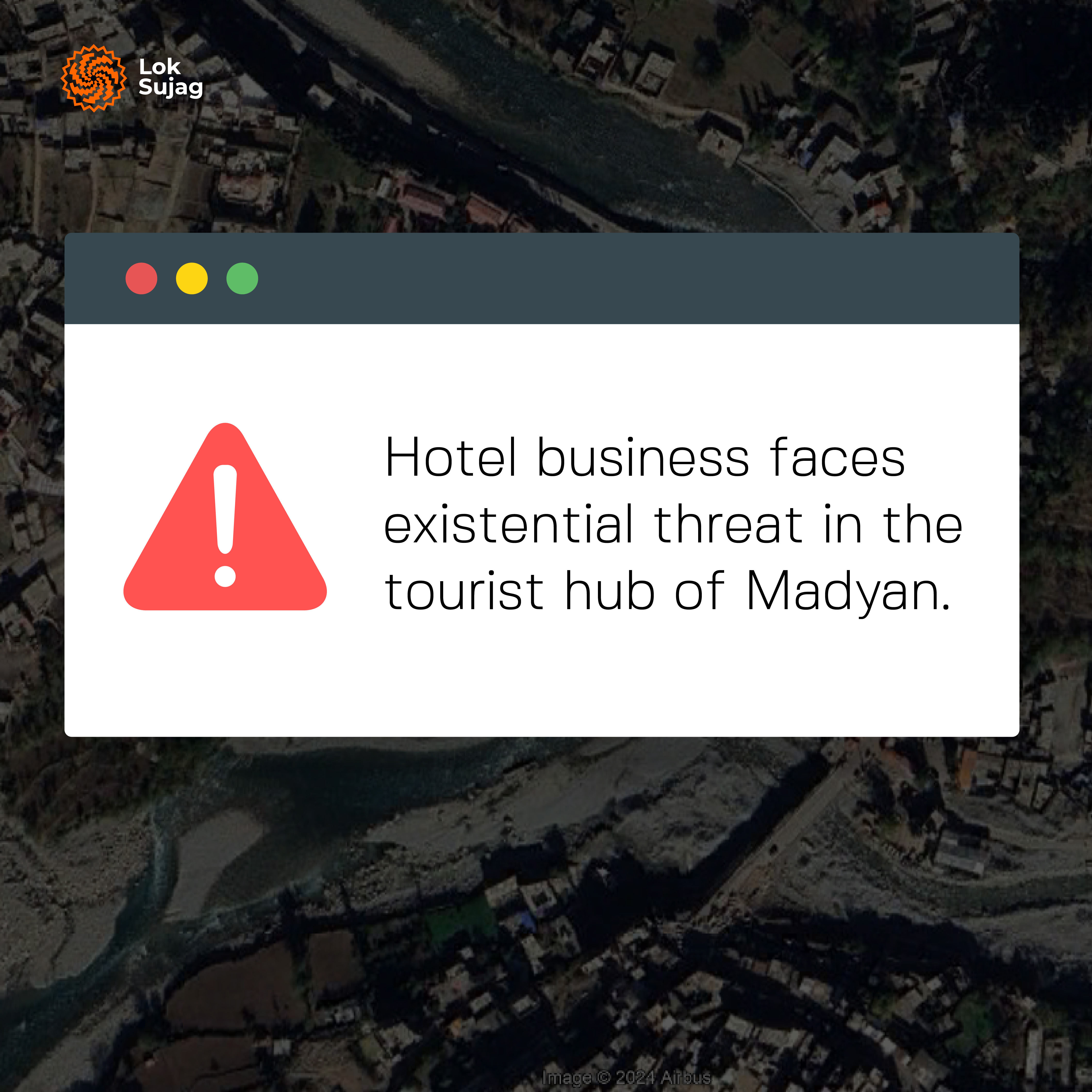
In the study area, a total of 12 mammal species from 11 genera were recorded that includes eight endangered small black bears, the lesser Indian wolf and four large animals, including the Asiatic jackal.
Brown cobra and Indian rock python are among the reptiles found here. Both species are listed as endangered by the International Union for Conservation of Nature.
The project area has birds from 91 families, including 30 endemic, 20 wintering, 36 summer breeding and five migratory bird species.
The construction of a hydropower project will severely affect the environment as well as the aforementioned wildlife. However, its socioeconomic impact will be far greater.
Socioeconomic impacts of hydropower
According to Pedo’s resettlement action plan, Madyan Hydropower Project will use about 1,050 Kanal (131 acres) of land owned by 141 families, affecting their 1,110 people members. The plan illustrates that the project will comprise about 20 Kanal residential, 640 Kanal agricultural, 285 Kanal barren area and 105 Kanal riverbed (government area). Moreover, it will demolish 37 houses and cut down 4,391 trees (including fruit trees).
According to the project’s Environmental and Social Impact Assessment (ESIA) report, this proposed project will impact the lives of 80,573 people residing in the surrounding 20 villages. Forty-three percent of them are cultivators, 15pc are private farmers and 13pc labourers.
The report justifies people’s concerns after confirming that this powerhouse will affect 15 natural springs.
Torwali and Swat River Rescue Movement
The majority of tehsil Bahrain is inhabited by the linguistic minority ‘Torwali’ who speak the Torwali language. Their population is estimated to be around 150,000. They mainly rely on income generated from farming and tourism.
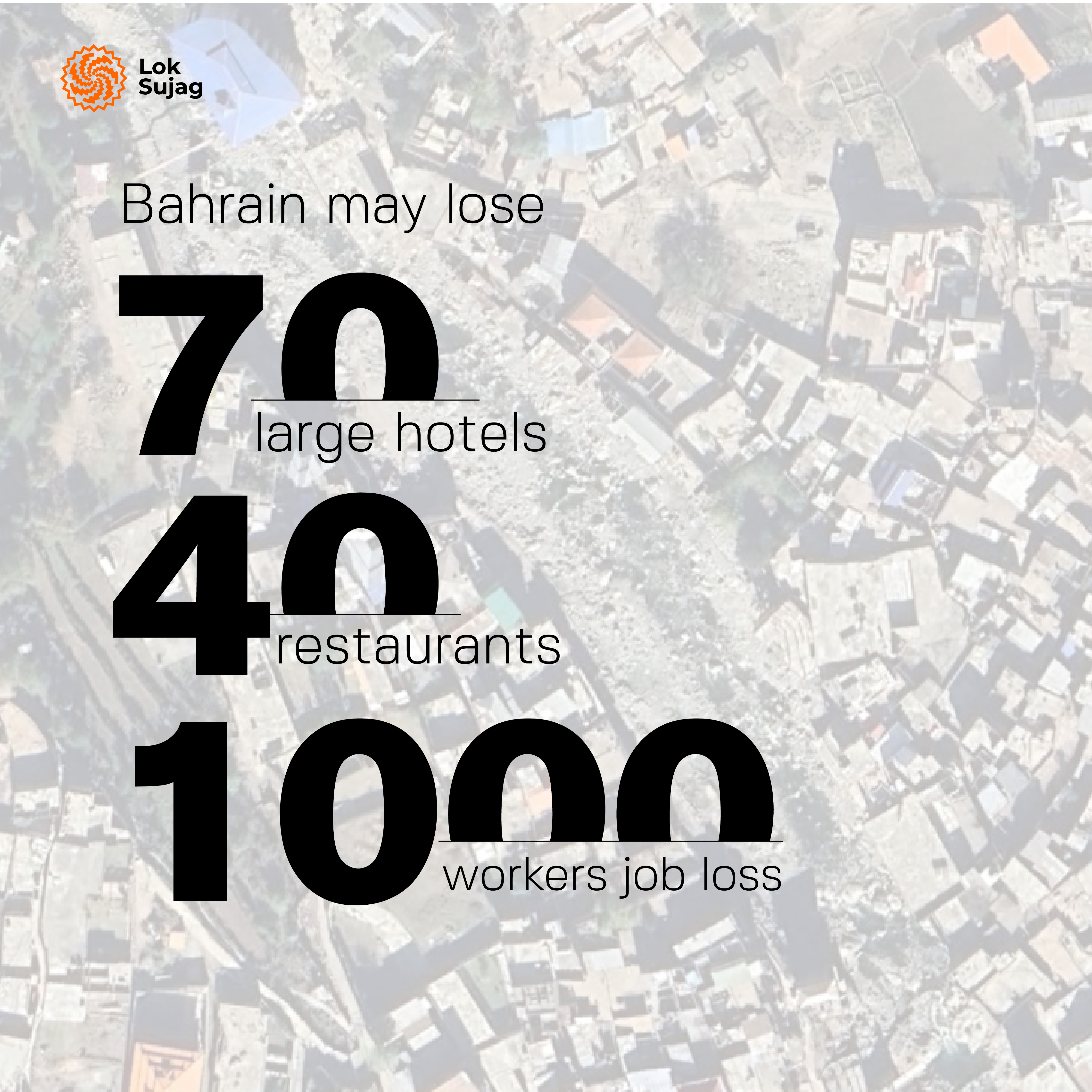
The Swat inhabitants are immensely concerned about Bahrain’s energy project and announced launching the ‘Save Swat River Movement’ to persuade the government to halt the hydroelectric project.
Nisar Ahmad Torwali also backs this movement as a part of the same community. He says that hundreds of thousands of tourists visit the area annually only to witness the river, humming waterfalls, springs and forest.
“The World Bank report admits that the tunnels built for hydropower will change the direction of the river. Therefore, cutting down the trees will leave nothing but a dry bed of a river that will not draw the tourists,” he shares his apprehensions.
Researcher and writer Zubair Torwali says that ‘Torwalis’ are the residents of this region whose livelihood is mainly dependent on farming and tourism. The loss of natural scenery along the river in Bahrain and Madyan will stop the visits of tourists.
“The hotel business will be diminished. Agriculture will end following the drying up of natural springs and there will be a shortage of drinking water. Moreover, destruction of the regional economy will give rise to poverty and socioeconomic problems.”
According to Zubair, the locals of Bahrain have invested millions in hotels and restaurants. Hence, diverting the river will not only destroy the ecosystem but will also snatch people’s livelihood and their investment would be lost.
Merajuddin, the president of the local hotel owners union, says that Bahrain has 70 large residential hotels and more than 40 restaurants that employ more than 1,000 people who are all 'Torwalis'. He fears that his area will be gripped by poverty and crime if the river, which is 6km above Bahrain Bazaar, is diverted and put into a long tunnel. The people here will be economically ruined.
Also Read
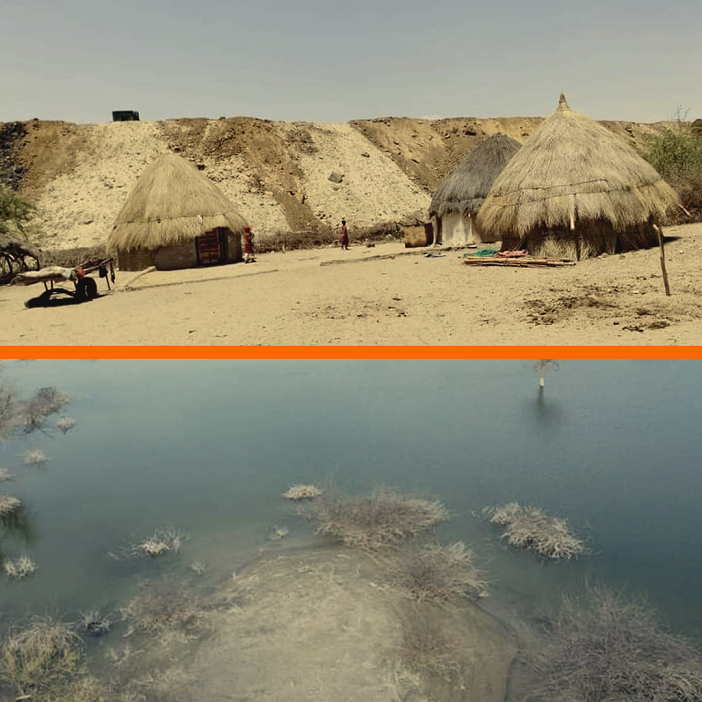
Gorano Dam: Impact of Thar Coal Mining on Water, Local Population and Environment
“The dam will benefit the country’s elite and the locals will lose their livelihood. Therefore, the hotel union, along with the locals, has decided to oppose this project,” Meraj says.
Zubair Torwali alleges that the stakeholders for the power project, including the leaders, the hotel and the land owners, have not been taken into confidence and Section 4 has been imposed to acquire their lands.
“The alleged meeting with the local community while preparing the review report is just a joke. In this regard, the local committee has made several requests to the World Bank, Pedo and the administration, but no progress has been made yet.”
He says that many springs have dried up and agricultural lands have become barren due to the digging of tunnels for energy projects in Dural Khar, Shangla, Dir and Chitral. They have directly impacted the local population.
When Lok Sujag placed the concerns of the people of Bahrain in front of Swat Deputy Commissioner Shahzad Mehboob, he said that they had accomplished the surveying for this project. However, he was taking notice of the objections, on which the tehsil administration had also held meetings with the people.
According to him, the Pedo authorities have clear government instructions not to initiate any project without addressing the grievances of the local people.
“I am also trying to ensure that the project does not push the people into economic and social troubles. We will not do anything against their will,” claims the DC.
Published on 9 Dec 2024
